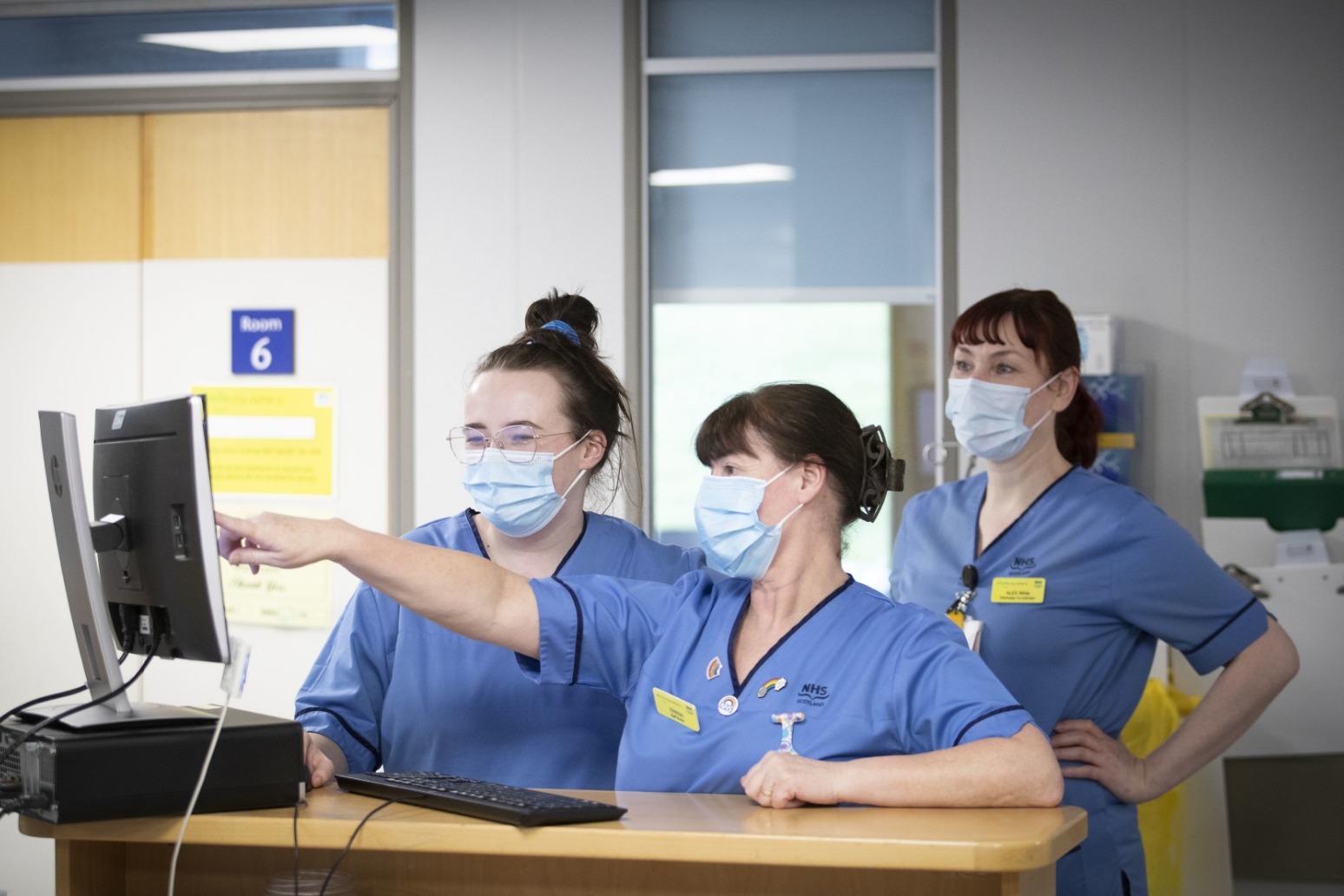
NHS recruitment drive for thousands of nurses amid record staff vacancies
The NHS has launched its annual nationwide drive to recruit more nurses as it tries to fill tens of thousands of vacancies across England.
England’s chief nurse Ruth May described the role as a “life-changing profession” where people can make a difference to someone’s life, but the drive comes as NHS staff are preparing for a challenging winter with the combined impact of flu, Covid and record vacancies.
The campaign – called We Are The NHS – spotlights the varied NHS nursing roles on offer and features patients who tell of how nurses helped them towards recovery.
NHS England points out that more than six in 10 people are considering a career change over the next year, and nursing degrees offer strong employment prospects.
It states that 94% of nursing graduates are able to find jobs within six months – and there are more than 46,828 nursing, midwifery, and health visiting vacancies in the NHS in England.
Helping with people from different walks of life and settings could be offered by the available nursing roles.
It could see nurses working in different areas including with those who have learning disabilities, in mental health, paediatrics or social care.
They could work across the community and not just in hospitals or GP practices, but also patient homes, schools or possibly prisons.
Ms May said: “From life-saving tests and checks and delivering millions of Covid and flu vaccinations, to getting people back on their feet as the NHS cuts 18-month waits and cares for the thousands of seriously ill patients in hospitals and across our communities, nurses play a vital role.
“As we approach the winter months and NHS services gear up to manage higher demand, it’s clear the difference that nurses make to the health service every day, and I urge anyone considering a career where they want to really make a difference to find out more.
“I am so proud to be a nurse in the NHS and so proud of every single colleague who has risen to the challenges facing the health service in recent years to continue to deliver the very best care to patients and their families.”
Ben Tansley, 32, who was left paralysed after suffering severe spinal cord injuries in a motorcycle accident in 2017, is among those who are part of the ad campaign.
He was confined to his bed for six weeks, spent three months in hospital but was determined to get home to his children for Christmas.
Mr Tansley, who has since completed the Berlin Marathon in his wheelchair, said: “Every aspect of care I received was incredible – from the moment I was airlifted from the roadside to the support I received in hospital. I owe the NHS my life.”
He praised the “dedicated team” of nurses who supported him as they “allowed me to continue doing what I do best – being a dad”.
As part of the campaign, the NHS has also launched a questionnaire to raise awareness of the number of different nursing roles available enabling potential candidates to find out which may be their best fit.
Annual payments of at least £5,000 are available to student nurses and midwives and those studying degrees related to allied health professions, such as speech and language therapy or occupational therapy.
NHS England said recruitment drives have helped increase the number of applicants to healthcare degrees in recent years, with the number of undergraduate nurses having risen from 40,770 to 52,150 since 2019.
Patricia Marquis, the Royal College of Nursing’s director for England, said the campaign highlights a “rewarding” career but “it is all futile until nursing staff are paid a fair salary”.
The RCN is balloting its members on strike action and “there is anger and motivation like never before”.
She added: “Each and every day, nursing staff give everything they have to care for their patients but a decade of real-terms pay cuts means many can’t even afford to feed their children or put petrol in their car to get to work.”
The drive comes after new analysis last month showed that record numbers of nurses are quitting the NHS in England.
More than 40,000 have left the health service in the past year – one in nine of the workforce, data examined by the Nuffield Trust for the BBC has shown.
The think tank said many of these were highly skilled and knowledgeable nurses with years more work left.
The Nuffield Trust said there is increasing evidence that stress and the need for a better work-life balance is driving nurses to leave.
Health minister Robert Jenrick said: “Those who join will help to bolster the workforce, which already has over 9,100 more nurses compared to last year – and with over 29,000 more working in the NHS now compared to September 2019, we are over halfway to delivering on our commitment to have 50,000 more nurses in the NHS by 2024.
“I encourage everyone to consider joining the NHS’s growing nursing workforce and see first-hand how you can make a positive impact to the world around you.”
Published: by Radio NewsHub